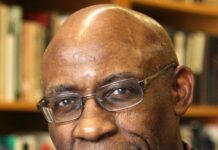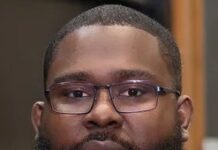 A new study led by Naomi Harada Thyden, a doctoral student at the University of Minnesota, examined who among a group of young adults was most likely to have a sibling or parent die and how often students experiencing such deaths obtain a college education.
A new study led by Naomi Harada Thyden, a doctoral student at the University of Minnesota, examined who among a group of young adults was most likely to have a sibling or parent die and how often students experiencing such deaths obtain a college education.
Using data from the National Longitudinal Survey of Youth 1997, participants, who were between the ages of 13 and 22, were asked if they had a sibling or parent die during those years. When they were between 29 and 32 years old, they were asked if they had graduated from college.
The results showed that Black adolescents (ages 13-18) and young adults (ages 19-22) were about 2-3 times more likely to have lived through the death of a close family member than White participants. Young adults, who were college-aged when a sibling or parent died, were about half as likely to graduate from college. Adolescents, who were high school-aged when a sibling or parent died, seemed to be less affected when it came to graduating from college, perhaps because they had time to recover before starting college.
“The findings show that it’s important to design college policies that consider and support all aspects of students’ lives, including their own health and the health of their families,” said Thyden. “Unfortunately, this research is likely more relevant than before, as data shows COVID-19 causes a disproportionate amount of illness and death among racial and ethnic minorities. It’s also important because universities looking for ways to save money might be tempted to cut elements of student support.”
The full study, “The Unequal Distribution of Sibling and Parent Deaths by Race and its Effect on Attaining a College Degree,” was published in the Annals of Epidemiology. It may be accessed here.











My 11 year old brother died in a bicycle accident exactly 2 weeks prior to starting my freshman year of college when I was 17. Thankfully, I was able to use my brothers death as a catalyst for being a competitive amateur cyclist at while at the University of Illinois (I watched my teammates race in the 1992 Barcelona Olympics), and later was the Founding Executive Director of the Barrio Logan College Institute (BLCI.org) in San Diego (my teammates and I went there to race & train after college) in 1996. My brothers dream was to one day attend Notre Dame (and play soccer for them). BLCI is still focused on getting underrepresented kids in and through college from the 3rd grade. After having tried to do what I call “save, serve, and sell” for the last 28 years, I am back to “saving” at the new Cristo Rey San Diego High School as their Chief Administrative Officer.